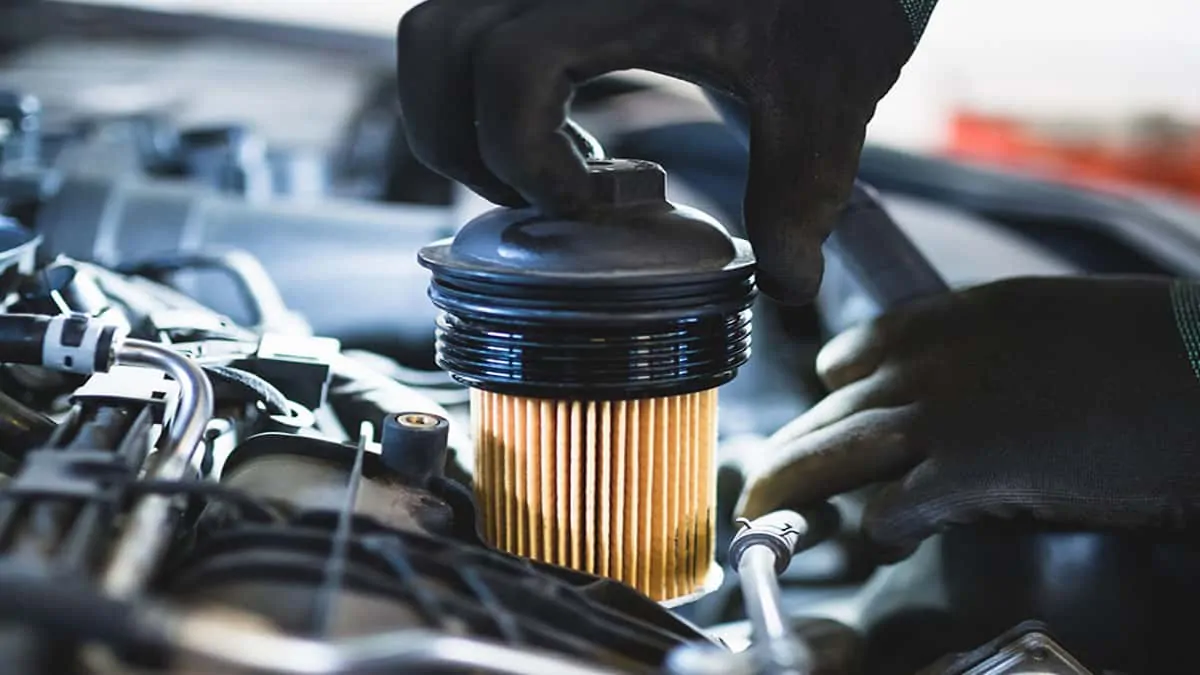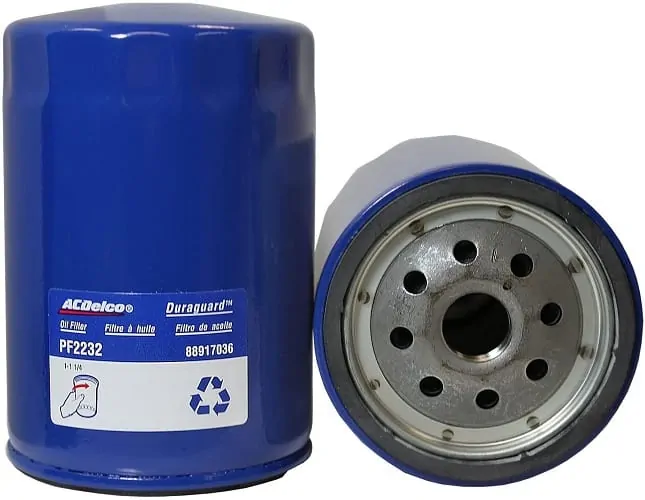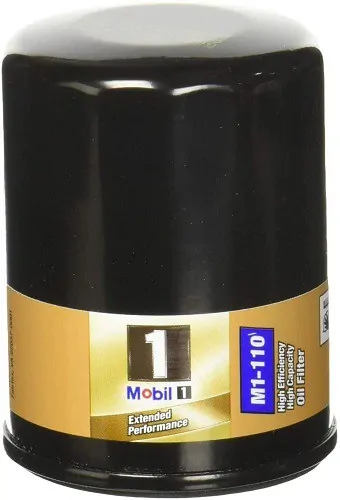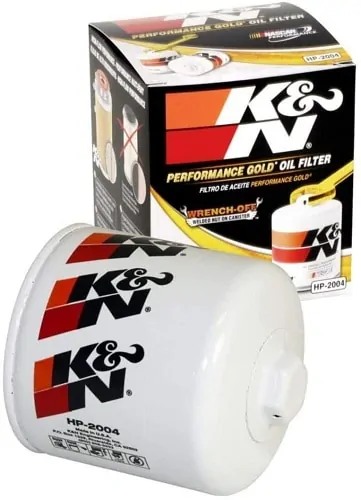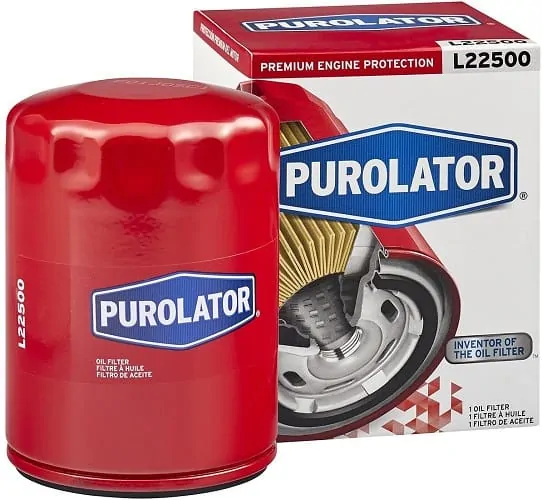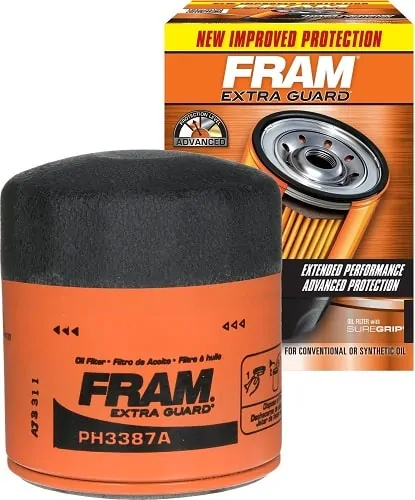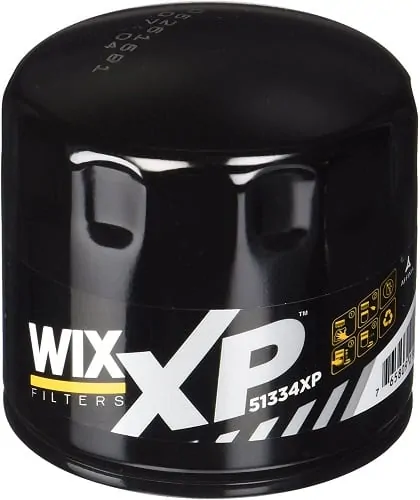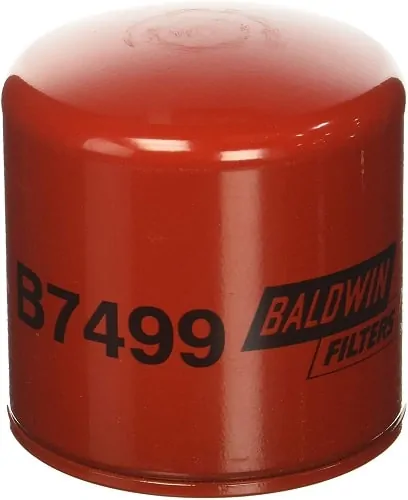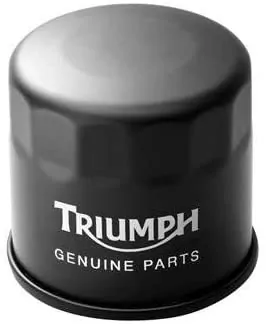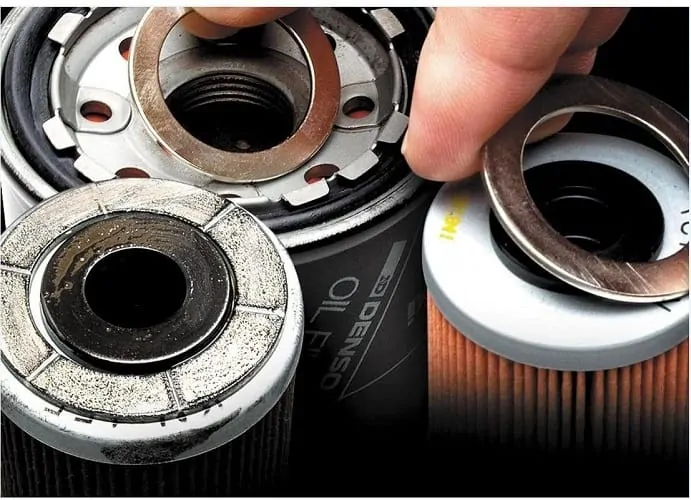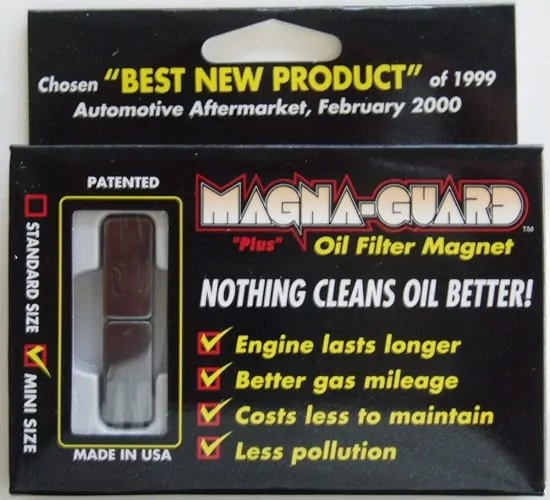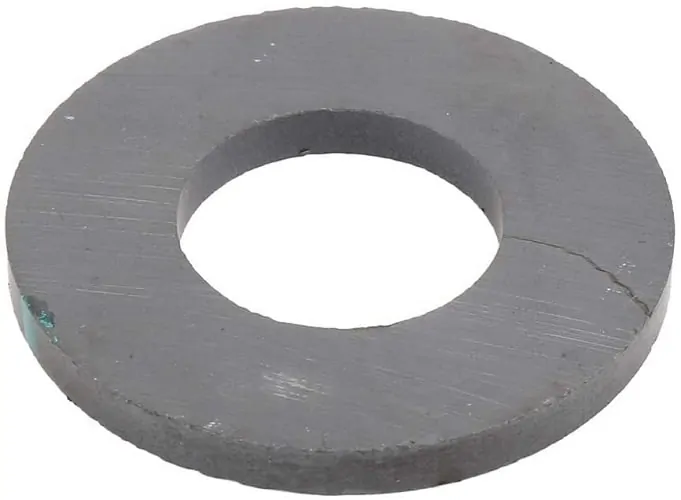The oil filter in your car might not be the most exciting part of your vehicle, but it’s definitely one of the most important. If the exhaust of your car is letting out dirty exhaust fumes, or your engine is overheating it might be time for an oil filter change.
Choosing the right product can be tricky, but don’t worry! In this buyer’s guide, we’ll look at the price and quality of the best oil filters. Helping you choose the right oil filter for you.
We’ll be judging each product by the quality of the product, versus its price. As always, we will be awarding the title of ‘Best Oil Filter’ to the product that offers the best deal.
| Oil Filter Type | Brand | Weight | Dimensions | Check Price |
|---|---|---|---|---|
| Mechanical Filters | 1. ACDelco | 1.1 pounds | 5.6 x 4 x 4 inches | Check Price |
| 2. Mobil | 4 ounces | 4 x 3 x 2.75 inches | Check Price | |
| 3. K&N | 1.02 pounds | 3.81 x 3.81 x 4.1 inches | Check Price | |
| 4. Bosch | 7.2 ounces | 4 x 3.5 x 4 inches | Check Price | |
| Spin-On Filters | 5. Purolater | 8.8 ounces | 3.2 x 3.2 x 4.3 inches | Check Price |
| 6. Fram | 1.8 pounds | 2.6 x 9 x 8 inches | Check Price | |
| 7. Wix | 9.3 ounces | 6.67 x 4.47 x 3.73 inches | Check Price | |
| 8. Baldwin | 6.4 ounces | 4.09 x 3.38 x 0.81 inches | Check Price | |
| 9. Triumph | 8 ounces | 3.3 x 3.1 x 2.8 inches | Check Price | |
| Magnetic Oil Filter Attachments | 10. Motion Pro | 1.76 ounces | 8 x 4 x 1 inches | Check Price |
| 11. Hardline | 0.8 ounces | 3.8 x 2.6 x 0.8 inches | Check Price | |
| 12. ACDelco | 0.8 ounces | 3.1 x 2.1 x 2 inches | Check Price |
Confused when it comes to oil filters? You’re not alone. An oil filter is a filter designed to remove the contaminants from the motor oil in your vehicle. Like we explained in our Buyers Guide on Fuel Injection Cleaners, nothing you put into your vehicle is ever 100% pure. Instead, the oil contains carbon, dust, dirt, sand, and even bits of metal. Yikes!
Even if these additives are microscopic, they can still cause serious harm. To prevent your pride and joy from getting damaged, you’ll need a way to filter out non-oil substances.
Specifically, you’ll need an oil filter.
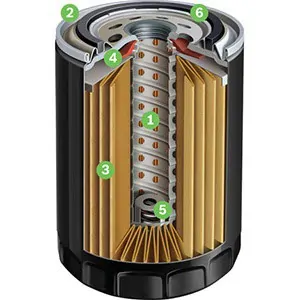
Oil filters aren’t particularly complicated devices, but the science behind them has developed over the last hundred years. Oil filters were first invented in 1923 by Ernest Sweetland and George Greenhalgh. The first oil filter was called the ‘Purolator’ (literally meaning ‘pure oil later’). This filter simply cycled oil around like a sieve, removing contaminants from it. These days, oil filters come in three main types, including mechanical, spin-on, and magnetic filters. First, let’s look at mechanical oil filters.
Mechanical Oil Filters
The first-ever oil filter, the ‘Purolator’ was actually a mechanical filter. These filters act as a sieve, pushing oil through tiny holes and trapping contaminants in the netting. Unlike a sieve, they have many layers of filtration. This often includes a mixture of filter paper, cotton waste, and bulkier materials like plastic and metal.
If you have a modern and expensive car, you might have a ‘High Efficiency’ (HE) mechanical filter. These filters have holes that are just 3 micrometres wide, which are extremely effective.
| Price Range (USD) | Symbol |
|---|---|
| Under $15 | $ |
| $16 – $30 | $$ |
| Over $30 | $$$ |
1. ACDelco Professional Engine Oil Filter
Winner Of Best Mechanical Oil Filters
Brand: ACDelco
Price: $$
Oil Type: Natural and Synthetic Oils
Warranty: 24 Months unlimited mile warranty.
Quality: ACDelco’s Professional Engine Oil Filter is a very sturdy product – able to handle oil pressure up to 51 PSI and high temperatures. It’s also a High Efficiency (HE) Filter, with filtration holes ⅓ the size of a hair. Even though this product is slightly more expensive, its lengthy warranty won it the title ‘Best Oil Filter’. It fits in a wide range of vehicles and is widely available internationally.
This product is also easy to install yourself – and should be able to be screwed in without tools in most cars. Like most ACDelco parts, this product is made with metal and paper – making it more durable than plastic filters. If you are a driver that wants to install your oil filter and forget about it for three years, this is the product for you. This filter also wins extra points for being fully recyclable and able to handle both natural and synthetic oils.
Frequency of maintenance: This product needs to be changed every 36 months – if you don’t drive Fast & Furious style.
2. Mobil Extended Performance Oil Filter
Runner Up For Best Mechanical Oil Filters
Brand: Mobil
Price: $
Oil Type: Synthetic and Natural oil
Warranty: 12 months
Quality: Mobil Extended Performance Oil Filter is the most reliable mechanical option available within its price range. We have chosen this product as the runner up for its durability, the quality of the materials, and its affordability. Unlike many other options of this price range, this filter uses metal fixtures instead of cardboard. While this makes it heavier, it increases the lifespan of the filter by several months.
In testing, this product was able to handle both synthetic and natural oils – making it suitable for nearly every modern car and driver. These filters can also be installed by hand, and have seals to avoid oil leakage. We also noticed that this filter frequently goes on sale in multi-packs. If you are looking to save money without buying a filter of questionable quality, this is the product for you.
Frequency of Maintenance: For best results, change this filter every year and a half, or 15,000 miles.
3. K&N Premium Oil Filter
Brand: K&N
Price: $$
Oil Type: Synthetic and Natural oil
Warranty: 12 months limited warranty
Quality: K&N’s Premium Oil Filter gets an honorable mention for its durability and affordability. In the same price range as the ACDelco filter, this product is built for high flow rates and high temperatures. It can be used in nearly every environment and withstands moisture and heat very well.
K&N’s filter also includes a drain-back valve that prevents this filter from leaking when changed, which is a nice safety feature to see. This product is compatible with most vehicles, and both natural and synthetic oils. It requires no special tools for installation – only a 1-inch socket wrench. Although it can’t meet the warranty of its competitors, this filter is an affordable back-up option.
Frequency of Maintenance: For best results, change this filter every year.
4. Bosch Premium Filtech Oil Filter
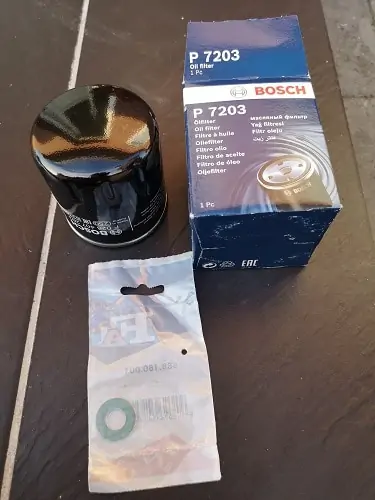
Brand: Bosch
Price: $
Oil Type: Natural oil only
Warranty: 12 months limited warranty
Quality: The Bosch Premium Oil Filter is a decent product for its price – even if it doesn’t tolerate synthetic oils well. In Bosch’s testing, this filter was able to hold up to 14 grams of gunk, and the filter uses mostly metal materials. This makes it fairly durable, and it is suitable for a decent number of modern vehicles.
This product installs fairly quickly but can be slippery, as the product does not have any grips. Bosch’s product also includes an anti-drain-back safety valve, making it safer to install than the other cheap and nasty filter options. However, this filter does not tolerate synthetic oils at all. Although the quality is decent, the warranty and price of this filter don’t qualify it for a higher rating.
Frequency of Maintenance: This product needs to be changed every 12 months.
Natural Vs Synthetic Oils
Now that we have covered off some mechanical filters you might be wondering what the differences between natural and synthetic motor oil are. While natural oil is derived from crude oil, synthetic oil is specifically produced with more lubrication. Synthetic oil is classed as a ‘premium’ product, as it can be more expensive. However, not every product can handle synthetic oil. If you use synthetic oil, make sure you double-check the product you choose.
Spin-On Oil Filters
Spin-On or ‘Centrifugal’ filters spin small amounts of oil extremely quickly. Then, like children at an amusement park, contaminants are stuck to the sides of the filter using centrifugal force. The clean oil then simply slides out the bottom of the unit, leaving all the nasty contaminants behind.
5. Purolator Premium Engine Oil Filter
Winner Of Best Spin-On Oil Filter
Brand: Purolator
Price: $$
Oil Type: Natural and Synthetic Oils
Warranty: 12 months full warranty.
Quality: Purolater’s Premium Engine Oil Filter is one of the most trusted products on the market – and for good reason. This filter is made with high-density materials and uses metal caps and bypass valves for extra safety. The filter is easy to install and has been shown to remove 96% of the debris that would otherwise harm your engine.
It’s durable, very affordable for the quality, and easy to install. For its affordability, safety features, and material quality, we are awarding the Purolator Premium Engine product range the title of ‘Best Oil Filter’. However, if you still need more, you can always upgrade to the Purolator Boss or Purolator ONE Premium Engine Filters – which are best used in extreme conditions or work vehicles.
Change this filter after every 5,000 miles for optimal performance.
6. Fram Passenger Car Spin-On Oil Filter
Runner Up For Best Spin-On Oil Filter
Brand: Fram
Price: $
Oil Type: Natural and Synthetic
Warranty: 12 months full warranty.
Quality: Fram’s Passenger Car Spin-On Oil Filter is easily the most affordable choice included in this buyer’s guide. Although prices are subject to change, it is very cheap when bought in bulk. However, this product range isn’t cheap and nasty. Fram filters are excellent for trapping dirt – removing up to 95% of the dirt in the oil.
Depending on the type of driving you do, you may want to consider Fram’s Tough Guard, High Mileage, and Ultra Oil Filters, which are best suited for high mileage vehicles in difficult climates. The Fram range is also able to handle natural and synthetic oils – making it great for the everyday driver who wants good results with little investment.
Frequency of Maintenance: For best results, change this filer every 5,000 miles.
7. Wix Oil Spin-On Filter
Brand: Wix
Price: $
Oil Type: Natural and Synthetic Oils
Warranty: 12 months full warranty
Quality: Wix Oil Spin-On Filter is a reliable and strong product suitable for a wide range of vehicles – even tractors! Although the product is newer than its competitors, it’s showing strong promise. With metal casing and a mesh center, it’s very popular for the price.
Manufactured in Germany, Wix’s spin-on filter is easy to install and is suitable for natural and synthetic oils. However, as these filters are not manufactured in the United States, they are significantly cheaper when you buy them online and in bulk. For a good backup option, you won’t go wrong with a Wix filter.
Frequency of Maintenance: For best results, change your Wix filter every 5,000 miles.
8. Baldwin Heavy Duty Fuel Filter
Brand: Baldwin
Price: $$$
Oil Type: Natural or Synthetic
Quality: Baldwin Heavy Spin-On Filters are a reliable choice for most vehicles, as they are made from metal with a separate external casing unit. They also include an extra seal between the filter and the engine mounting surface, making leakages unlikely to happen.
Although these filters are quite strong, durable, and reliable they are more expensive than Purolator or Fram filters while offering a similar level of quality. This is still a good product, but it’s overkill for the average car owner. However, if you have a heavy-duty vehicle or live in an extreme climate, this product is suitable for you. If you buy Baldwin filters in a multi-pack you can get them for a far more affordable price.
Frequency of Maintenance: For the best results, replace these filters every 3,000 miles.
9. Triumph Spin-On Oil Filter
Brand: Triumph
Price: $$
Oil Type: Natural or Synthetic
Warranty: 12 months limited warranty
Standard: Triumph’s Oil Filter is simple to install, durable, and made of metal. It is a well-liked product among motorbike fans, and now more commonly used on cars. While it may not be appropriate for all vehicles, it is dependable, reasonably priced, and long-lasting. Despite being a good quality choice, it’s not as commonly used due to marketing.
While it’s a little bit more expensive, Triumph products seem to carry a cult-like following. If this filter fits your vehicle, you might as well see what all the fuss is about.
Maintenance Frequency: For optimal performance, replace this filter every 4,000 miles.
When To Replace Your Oil Filter
Changing your oil filter is extremely important, but it isn’t a part of your vehicle’s regular maintenance schedule. Most vehicle owners today are busy people with jobs, families, and hobbies. That means that while you love your car, changing your oil filter isn’t exactly on your mind 24/7. Thankfully, the best oil filters last year – but eventually, they have to be changed.
If any of the following things are happening to your vehicle, it’s time to put the gloves on and take a look at your oil filter.
Metallic-like Noises And An Overheating Engine
When your oil filter becomes clogged, oil stops being able to pass through the filter. This stops the oil from being able to lubricate your engine, causing the metal parts to rub against each other. This friction will generate heat, which will overheat your engine.
As a worst-case scenario, we refer to this as your motor ‘freezing up’. Even if your motor doesn’t freeze up, any metallic sounds coming from it are cause for concern. Before getting anxious, inspect your oil filter.
Dirty Exhaust Fumes
Exhaust fumes are, by definition, dirty. However, if your engine is releasing a gas so foul you can’t see through it, it’s a sign your oil filter is clogged. When oil can’t enter the engine through the filter it drips into the exhaust system. This creates two things. Firstly, a mess, and secondly, an odor that smells like burning. If your exhaust fumes are dirty it’s time for a filter change.
Oil Leaks And Pressure Decreases
When your oil filter becomes clogged oil can’t enter the engine, causing a drop in oil pressure. On the other side of the filter, the oil still has to go somewhere. If it doesn’t enter your exhaust system it will leak out under your vehicles like a disgusting Hansel and Gretel. If you notice oil leaks, your oil filter is likely to blame.
Magnetic Oil Filters
Magnetic filters are a very simple type of filter. They pass the oil through a magnet. While oil will pass through into the engine, metal becomes stuck to the magnet. However, these are quickly becoming unpopular, as there is a lot of debate over their effectiveness. In particular, magnetic oil filters do not sift out dirt, sand, and dust – which can still damage your engine.
However, if you’d like to try out a magnet attachment for your filter, we’ve decided to review some! These magnets are attached to any product with a metal casing, collecting small pieces of metal inside your engine. Just for fun, we’ve decided to review three magnet attachments. Let’s see what all the fuss is about!
10. Motion Pro Oil Filter Magnet
Winner Of Best Oil Filter Magnet Attachment
Brand: Motion Pro
Price: $
Quality: The Motion Pro Oil Filter Magnet was the first filter magnet on the market, after being invented during the Baja Offroad Championships. This magnet is just 1.76 ounces and will last between 2-3 years. Available in two sizes, it attaches to the base of your engine filter – and can be used with either mechanical or spin-on filters. However, be careful that you check this magnet will fit onto your filter before purchasing.
Rating: 9/10
11. Magna Guard Black Oil Filter Magnet
Runner Up for Best Oil Filter Magnet Attachment
Brand: Hardline Products
Price: $
Quality: Hardline Products Magna Guard Black Magnet is a strong, affordable magnet that can be used on many vehicles – from motorcycles to cars to boats. Instead of installing the magnet on the outside of the filter, they are installed inside. While this means you need to repurchase the magnet more frequently, it prevents the magnet from falling off. Magna Guard magnets are sold in two packs, making the product good value for money. The magnets are light at 0.04 ounces each, and are strong, as they remove up to 40 times more grit than a regular filter. They are made in the USA and come in two sizes.
Rating: 8/10
12. ACDelco Original Equipment Fluid Pan Magnet
Brand: ACDelco
Price: $
Quality: ACDelco’s Fluid Pan Magnet is also suitable for use with an oil filter. Weighing just 0.8 ounces, it’s a very small magnet. Originally, these magnets came in two sizes, but the larger size has temporarily been pulled from the market. However, these new magnets are far stronger anyway – so you aren’t missing out. Some of these magnets have been slightly weak, so make sure you test the magnet against your new filter before installing it. Vehicle owners with large vehicles might prefer to purchase two magnets. As these magnets are very small, just be careful not to throw it out when you change your oil filter over!
Rating: 6/10
Frequently Asked Questions
What Is The Best Oil Filter?
The best mechanical oil filters are the ACDelco Professional Engine Oil Filter and the Mobil Extended Performance Oil Filters. The best spin-on filters are the Purolator Premium Engine Oil Filter and the Fram Passenger Car Spin-On Filter.
How To Change The Oil Filter?
To change your oil filter, you will need to drain your vehicle of oil and use a socket wrench to remove the filter. Then, you screw the new filter into place and refill your engine with motor oil. To do this safely, you need a ramp, gloves, motor oil, a new oil filter, and a container for the old oil.
What Is An Oil Filter Used For?
An oil filter cleans and regulates the oil that enters your engine. As sand, dirt, dust, and metal shards can enter your vehicle when you put oil in it an oil filter is necessary to ensure these additives do not end up in your engine.
What Happens When You Put The Wrong Oil Filter In Your Car?
Installing the wrong oil filter in your vehicle can lead to oil leaking through onto the ground, as the oil will not flow into the engine at its regular rate. If this occurs, you will notice a sharp drop in oil pressure. Long term, a lack of oil will cause your engine to overheat or seize.
How Often Do You Need To Change The Oil Filter?
There are two reasons to change your oil filter. Firstly, if your filter is clogged or damaged you must change it immediately. Secondly, if you want to prevent your engine from getting damaged, you should change your oil filter every 12,000 miles or every 12 months.
How To Know If The Oil Filter Needs Changing?
Your oil filter may need changing if your oil filter becomes broken or clogged. You will know that the oil filter needs changing if your engine is overheating, you hear metallic noises, your exhaust fumes are dirty or your oil pressure decreases.
What Happens If I Don’t Change My Oil Filter?
If you don’t change your oil filter, the filter will get clogged. When the filter gets clogged oil cannot enter the engine. This will cause your engine to seize, as the metallic parts of our engine will rub against each other.
Do Oil Filters Come In Different Types?
Oil filters come in three types: mechanical, magnetic, and centrifugal. Mechanical oil filters restrict oil flow like a sieve and magnetic filters use magnets to attract metals. Centrifugal filters spin oil to separate the contaminants from the oil. When the oil leaves the filter, the contaminants are stuck to the sides of the filter.
Do Oil Filter Magnets Work?
Magnetic oil filters themselves have been proven to be ineffective at filtering out substances other than metal. For this reason, they are not recommended. However, magnets are an interesting new product that allows you to enhance the quality of your filter.
How To Change An Oil Filter
We like to advocate that there are many types of car maintenance every vehicle owner can perform themselves. Changing your oil filter is a straightforward process, but you’ll need to gather a few tools before you get started. Those tools include:
- Gloves to protect your hands, and any other PPE you’d like
- Your new oil filter
- A sealable container large enough to drain your vehicle’s oil
- Motor oil
- Socket wrench (optional)
- Ramps or car jack to prop your vehicle up (and chucks if you prefer)
- Rags suitable for cleaning oil
In most vehicles, you will need to drain the oil out of the vehicle before you can access the oil filter. Even if the two units can be changed separately, we advise you to change the oil before changing your oil filter – as this will prevent hot oil from dropping onto you and burning you. While this might seem inconvenient, it allows you to perform two regular maintenance tasks at once – which will save you time, money, and a hospital trip long term. Now – onto the fun stuff!
Step 1. Start Your Engines!
Before you can change your oil filter, you’ll need to drain your engine oil. However, cold oil drains extremely slowly the solution.
Run your engine until it reaches full operating temperate (195 to 220 degrees Fahrenheit). This will heat the oil up, helping it drain faster. However – be careful! Hot oil will burn you, so be careful not to run your engine for more than a few minutes.
Step 2. Drive Onto Ramps
While draining your oil and changing our oil filter, you will need to access the underside of your vehicle. However, most vehicles are too close to the ground for their owners to comfortably fit underneath.
To access your vehicle with safety and style, use a pair of ramps under your two front tires. This will prop your vehicle up enough to allow you access underneath. While it might seem tempting to forgo the ramps in favor of creating your own, this is really, really dangerous.
To perform an oil filter change, you will need to access the underside of your vehicle – usually by lying underneath it. Most modern vehicles weigh between 2600lbs to 4400lbs. If your ramp fails and that weight drops on you it will kill you. Don’t risk it – get a pair of ramps or a car jack.
Step 3. Drain The Old Oil
Once you have propped your vehicle up (safely, with ramps!) you will need to drain the old oil. To start this process, you’ll need to put your gloves on. First, access the underside of your vehicle and place the oil container underneath the oil drain plug. Remember – this container needs to be sealable so you can transport it safely. Carefully, unscrew the cap with the help of a socket wrench (if needed). The oil will start to slowly drain once you remove this plug.
If you want to speed up the process, you’ll need to unscrew the filler cap in your engine. This filler cap is where you refill oil, and it’s located within the bonnet. As the oil tank is pressurized, opening the filler cap will allow the oil to drain faster. Thank you, physics!
Step 4. Replace Oil Plug
Before you can remove your oil filter, you’ll need to replace the oil plug. This is really important, as it will prevent hot oil from dripping onto you. Depending on your vehicle, you will need to use a socket wrench.
Step 5. Remove The Old Product
Once you’ve drained the oil out of your vehicle, it’s time to remove the old oil filter. Carefully, use your socket wrench (or oil filter wrench) to remove the filter, placing it into the container of old oil. The filter can still contain hot oil, so be careful not to burn yourself.
At this point, you’ll need to wipe down the mounting surface with a rag to remove any excess oil. No – this isn’t mandatory, but it’s best to practice.
Step 6. Insert Your New Product
Checking the instructions included with your new oil filter, install the new oil filter while underneath your vehicle. Generally, you’ll need to screw the seal in by hand.
Step 7. Replace Engine Oil
Once you’ve crawled out from underneath your car, it’s time to replace the motor oil in your vehicle. Take your new motor oil and pour it into the filler tube within your bonnet. However – ensure you double-check the oil plug underneath your car is securely in place to avoid dripping oil everywhere.
To check for leaks, run your car for 3-5 minutes and check the underside of your vehicle. If there are no leaks, check your oil level. You can do this by removing the dipstick, wiping it on the rag, replacing it, and checking it your oil meets the ‘full’ mark. Depending on the results, you may need to pour more oil into your vehicle. However! You will need to ensure your car is not on the ramps during this stage – as your car must be level to check the oil.
Step 8. Dispose Of Old Oil Responsibly
Motor oil and motor oil filters cannot be poured down the drain or thrown in the trash. These substances can be harmful to the environment when not disposed of properly. Instead, drop them off at your nearest engine oil drop-off area, or recycling center. If you don’t know where this is, simply ring your mechanic and ask them where you can dispose of the oil.
Conclusion
While we can compile the best oil filters on the market, the best oil filter for you will meet your needs, at your price. In a world with so many great oil filter options, settling for mediocre, expensive oil filters is not necessary – some of the best car products come at the most affordable price. Your vehicle and its needs are as unique as you are. Choosing the best oil filter for your car depends on a number of factors – including your budget, your lifestyle, and your vehicle.

Garry is the happy owner of a funky 2018 Nissan Juke Ti-S AWD. After growing up around his family’s mechanics shop, he is passionate about bringing budget-friendly car care to every driver. Garry has a business degree and is a car enthusiast.

